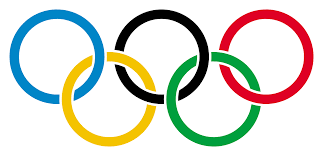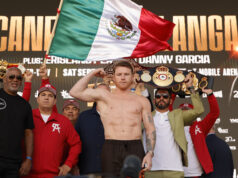
By Norm Frauenheim-
The Olympics were supposed to start a week from now. On July 23, Opening Ceremonies were scheduled for the 2020 Games. Like so much else, the Tokyo Olympics are just another postponement in a year that will only be remembered for a pandemic.
Maybe it doesn’t matter much during a time when diversions have been supplanted by infections and death counts. Masks are a lot more important than medals these days.
Still, it was a chance to see if there’s another Michael Phelps, or another Usain Bolt, or another Claressa Shields, or more of Simone Biles and Katie Ledecky. That’s the beauty of the Olympics. Amid its parade of pageantry and history, there’s always the promise of something new.
From Mark Spitz to Phelps, from Jessie Owens to Bolt, from Muhammad Ali to Joe Frazier and George Foreman, the Games recreate themselves. They remind us we’re getting faster and perhaps better. They’re overdone and way too expensive. But optimism isn’t cheap, which is something that becomes increasingly evident with every postponement forced by multiplying numbers that suffocate hope.
The Olympics will be back in some way, in some form. For now, the 2020 version has been rescheduled for 2021, still in Tokyo next year starting on July 24. In times ruled only by chaos, however, it’s fair to wonder if the Games will in fact go off as planned. Postponement is today’s only certainty.
Even if there are Opening Ceremonies next July, some of the key athletes might have already moved on. There’s no paycheck in waiting, especially when a pandemic is the boss. That’s especially true for boxing, which has pushed itself to the Olympic fringe over the last three-plus decades. Fact is, boxing has almost eliminated itself as an Olympic entity with successive scandals that date back to judging that robbed Roy Jones Jr. of a gold medal at the 1988 Seoul Games.
For every scandal, however, there are also fighters who come out of the Olympics and become the stars that are the pro game’s lifeblood and profit margin.
American Oscar De La Hoya won a gold medal in 1992. Floyd Mayweather Jr. won a bronze medal for the US in 1996. American Andre Ward won gold at the 2004 Olympics in Athens. Gennadiy Golovkin (Kazakhstan) and Amir Khan (UK) won silver medals in Athens. Ukrainian Vasiliy Lomachenko won gold medals in two Olympics – 2008 and 2012. American heavyweight Deontay Wilder won bronze at Beijing in 2008. UK heavyweight Anthony Joshua won gold London in 2012. American Shakur Stevenson, an emerging star, won silver at Rio de Janeiro in 2016.
Without them, the pro game of the last 28 years would have been much poorer.
That creates a problematic future for today’s version of pro boxing. Although Olympic boxing has receded in terms of media attention, history says it is still an important resource. The best Olympic boxers arrive in the pro ranks already known to most of the customers. They have experience with the media, they know how to fight away from home and they know their way around the ring.
To wit: The business still needs them.
But no Olympic boxing in 2020 could strip the promoters and networks of the personalities and performers they will always need. Already, there is uncertainty about one of America’s best prospects, Keyshawn Davis.
Davis, the world’s No 1-ranked amateur lightweight and a silver medalist at the 2019 World Championships, did not report to Colorado Springs this week for training toward the re-scheduled Tokyo Games, according to a report in Boxing Scene. It’s not clear why he didn’t show up in camp Monday.
Davis, of Norfolk, Va., and a Stevenson friend, has sent out mixed messages about his plans. When the Tokyo Games were postponed in late March, he told some media outlets that he still wanted to go for Olympic gold. He would not turn pro until after the Olympics a year from now, he said. But he also said there was “a 70 percent” chance he’d go pro.
Who knows?
That’s about all anybody can say during days dominated by only questions instead of the Olympic motto: Citius – Altius – Fortius. The three Latin words means Higher-Faster-Stronger in most years. But they could mean anything, anything at all in 2020.











